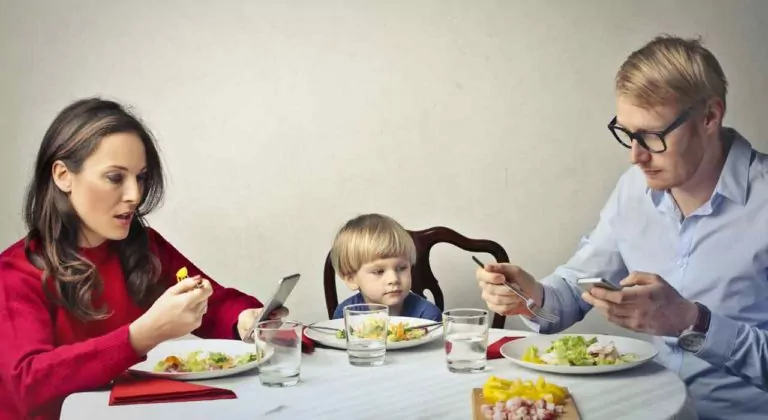In September, at least five of the United Kingdom’s online newspapers shared the results of a study claiming one-third of Brits eat their dinners in complete silence (we linked to just the one paper because the others are sleazy). They reported the study was commissioned by Old El Paso, the Tex Mex food producer, and involved 2,500 British parents. Other findings include:
- 4 in 10 parents don’t eat at the same time as their children most days
- only 20% of families eat dinner together every day of the week
- 44% of respondents admit to staring at their phones well eating
Apparently more and more families don’t have the energy or intimacy to know how to interact with one another. That’s sad, if true.
But this has a whiff of fake news about it. How so? The original study is untraceable – we’re told it was commissioned by Old El Paso, but we aren’t told what polling organization did it. No further information can be found on the company website or social media pages. Also, while the news articles have a few different titles, most were authored by just one reporter, Rob Knight (a few others were unattributed, and some were shorter abridgments). So even as it seemed this story was coming from lots of different sources, it actually amounted to just one. What we’re left with is one reporter telling us about a study that can’t be traced, which was published by a company that hasn’t publicized it on their website or social media. None of that means its fake. It does give us reason for healthy skepticism.
For Christians, how many Brits talk during dinner isn’t as important as that we know how to handle such news stories. We’re all news outlets now, what with our social media accounts, so the question we have to ask is, are we going to be reliable or unreliable reporters? This is a big deal. After all, we worship a God-man who died and came back to life, which is already a stumbling block to the Jews and foolishness to the Greeks (1 Cor. 1:23). We don’t want to blow our credibility where it hardly matters by passing along trivia that doesn’t turn out to be true. Instead we want to be careful in the small things, so that we will be seen as trustworthy when we talk about what, or rather Who, really matters.












